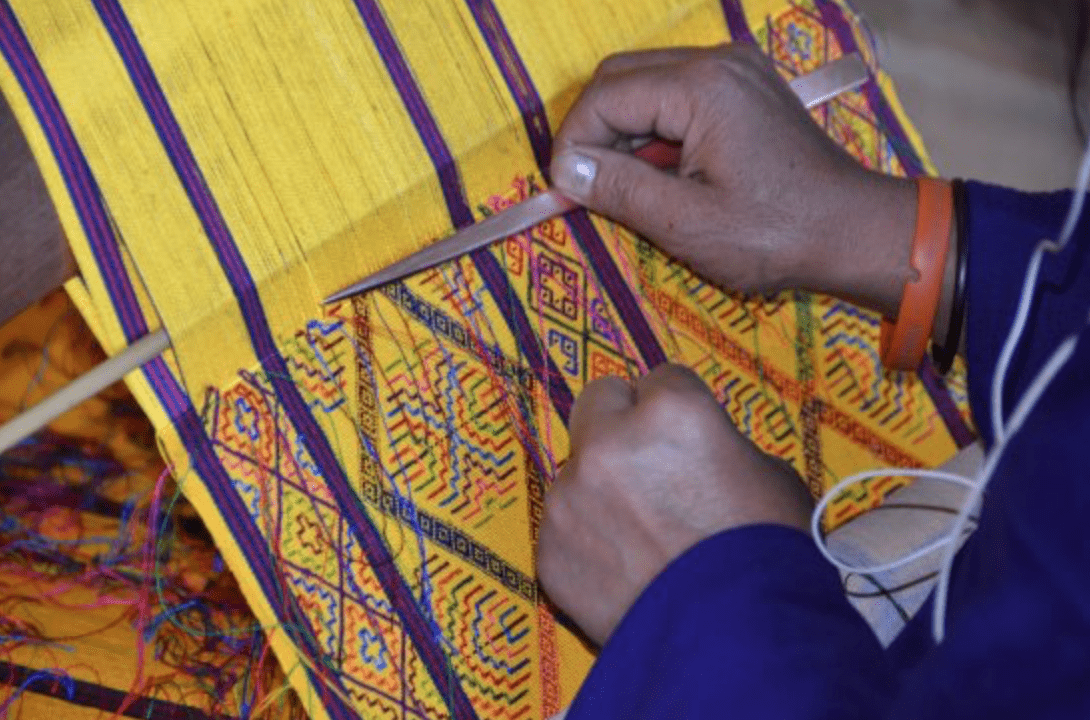Bhutanese textiles are recognized worldwide for their abundance of color, sophistication, variety of patterns, and for intricate dyeing and weaving techniques. The weavers, who are mostly women, are not only brilliant creators of wealth but also the innovators and owners of artistic skills developed and nurtured over centuries of time. One of the most unique features of the traditional dress is that the distinctive tradition has evolved over thousands of years and people still preserve it in modern times.

A weaver works 10 to 12 hours per day can take more than a year to produce a single textile piece. The technical skills of Bhutanese weaving are taught in six-year courses at Royal Thimphu College and The Royal Textile Academy of Bhutan, both in Thimphu. Any colors that make a pleasing combination can be used to weave different types of Kiras and Ghos. The Kira may be made from cotton or silk, and for more formal occasions women wear a Kira with eye-catching patterns of threads woven into it.
Kira is the national dress for a woman in Bhutan. It is a large, rectangular textile that is wrapped around the body, folded into a wide pleat in front, and fastened at the shoulders with ornate silver and gold brooches. The dress is belted tightly by a 'Kera' and bloused about the waist to form a pouch. A kira is worn over a blouse and topped by a jacket called Tego
This kira is made of cotton with raw silk patterning. Kira's pieces are woven as long narrow panel with supplementary weft and then cut into three panels and joined in the warp direction.
Kira and its origins?
Zhabdrung Ngawang Namgyal introduced national dresses for men and women during the 17th century in an attempt to lend a unique identity to the people of Bhutan. All Bhutanese citizens are required to observe the national dress code, known as Driglam Namzha, while in public during daylight hours. All Bhutanese have to wear their national dress in government offices, schools and all formal occasions.
The art of weaving in Bhutan
Bhutanese textiles are recognized worldwide for their intricate pattern, aesthetics, sophistication, variety of patterns, and for intricate dyeing and weaving techniques. Most weavers in Bhutan are women and bear the artistic skills that are nurtured and passed down generations.
A weaver can take anywhere between 10 hours a day to more than a year to produce a single textile piece. Color combinations are purely artistic expressions of the weaver to create different patterns of Kira for women and Gho for men.
The Kira may be made from cotton, silk, or a hybrid mix of different threads. Weaver takes pride in their native patterns from the different parts of Bhutan such as Khoma village in central Bhutan. One of the most unique features of the traditional dress is that Bhutanese people still preserve and wear the dress on a daily basis.

You may also like:




















